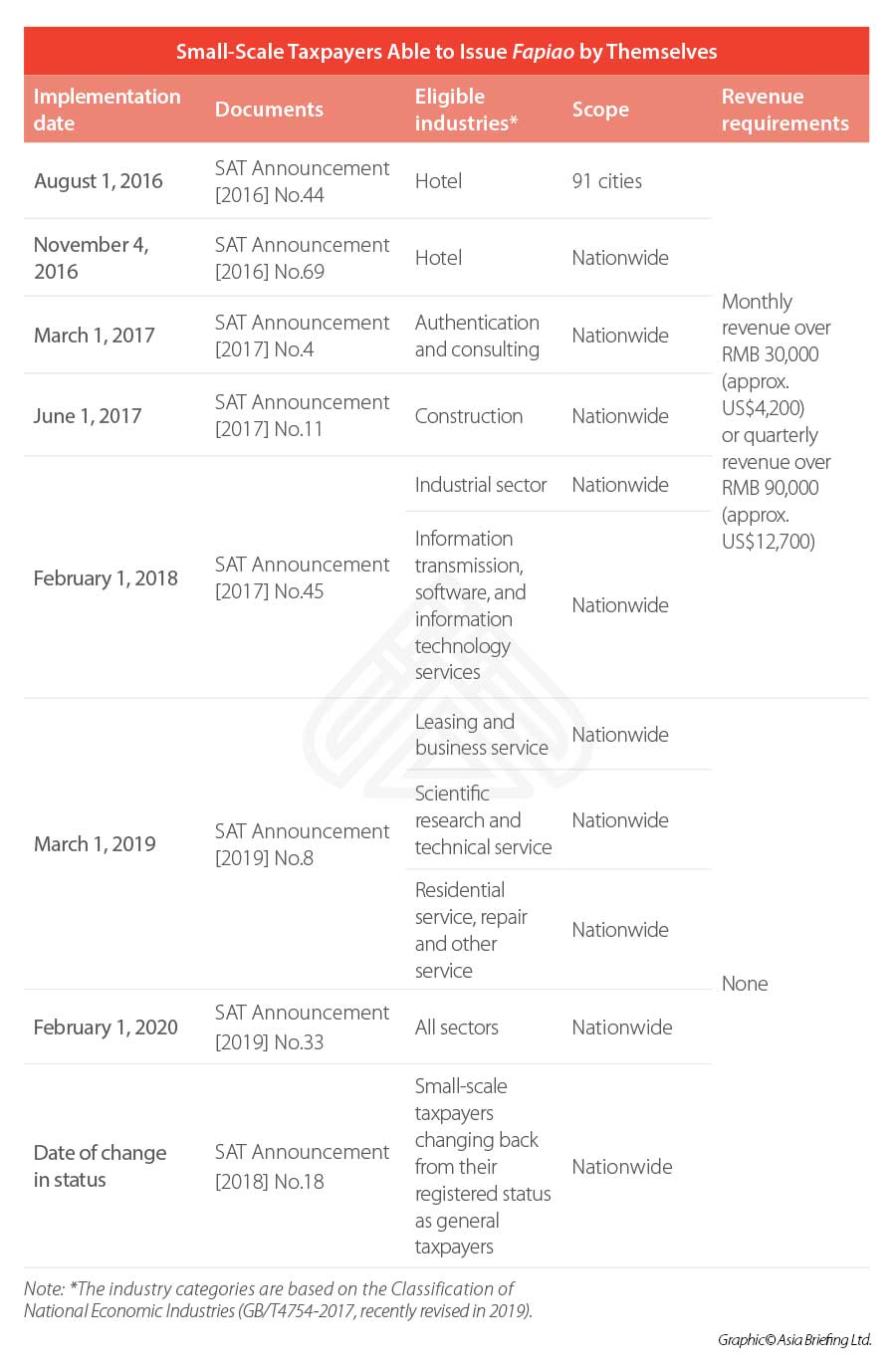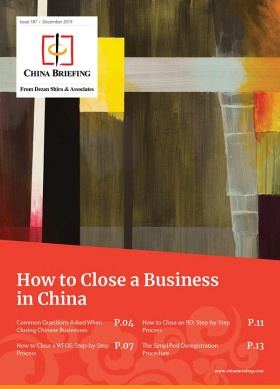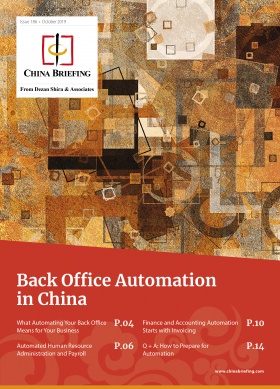Can Small-Scale Taxpayers Issue Special VAT Invoices by Themselves in China?
The special value-added tax (VAT) invoice, also called special VAT fapiao, is an essential document used to offset input VAT from output VAT, thereby relieving the taxpayer from VAT payment liabilities.
Traditionally, a company must obtain VAT general taxpayer status in order to be able to issue special VAT invoices. However, in August 2016, China launched a pilot program to allow small-scale taxpayers in the hotel industry to issue special VAT invoices by themselves. This pilot program has since expanded several times to include more sectors and a wider geographical scope.
Below we introduce the progress made by these pilot programs, analyze the benefits and limitations of self-issuing special VAT invoices, and provide advice from tax professionals.
Origin and expansion of the special VAT fapiao program
As mentioned above, traditionally, only general taxpayers could issue special VAT invoices to their customers.
However, to ensure the smooth implementation of the VAT reform, and facilitate use of invoices by taxpayers, the State Administration of Taxation (SAT) launched a pilot program on August 1, 2016. (Note: The SAT was renamed the State Taxation Administration in 2019.)
This initially allowed small-scale taxpayers in the hotel industry in 91 cities (showing a monthly revenue over RMB 30,000 (approx. US$4,200) or quarterly revenue over RMB 90,000 (approx. US$12,700)) to issue special VAT invoices by themselves.
The pilot program was then expanded, several times, to cover a wider area, include more industries, and is now subject to lower threshold requirements:
- On November 4, 2016, the pilot program was expanded to the hotel industry nationwide;
- On March 1, 2017, the authentication and consulting industry was added into the pilot scheme;
- On June 1, 2017, the construction industry was added into the pilot scheme;
- On February 1, 2018, this pilot program was expanded to the industrial sector as well as the information transmission, software, and information technology services sector;
- On March 1, 2019, the pilot program was further expanded to the leasing and business services industry, the scientific research and technical services industry, and the residential service, repair and other service industries. Further, the revenue requirement for eligible small-scale taxpayers was removed; and
- Starting from February 1, 2020, small-scale taxpayers (excluding other individuals) in all sectors can use the invoice management system to issue special VAT invoices to their customers, according to the Circular about Implementing the Second Batch of Tax & Fee Facilitation Measures released by SAT in August 2019, and the SAT Announcement [2019] No.33.
Besides the above-mentioned cases, small-scale taxpayers who had switched their status from the general taxpayer status could continue to issue special VAT invoices by themselves, as long as the special VAT invoice was approved before the switch date.
To better illustrate the progress of the expansion of the pilot program, you may refer to the table below.
How can small-scale businesses use the program?
The pilot program was designed to facilitate the usage of special VAT invoices by relevant taxpayers. And in practice, it indeed brings convenience to millions of small-scale taxpayers who need to issue special VAT invoices to their customers.
However, small-scale taxpayers making use of the program should pay attention to the obligations and risks associated with the greater convenience. Compared to issuing a general VAT invoice, the special VAT invoice is subject to stricter monitoring and has higher legal liabilities considering it can be used for tax deduction purposes.
Below, we list out some points that small-scale taxpayers should pay attention to:
- Eligible small-scale taxpayers engaging in relevant sectors can issue special VAT invoices for composite sale. Composite sale refers to the cases where an entity is selling goods and providing services concurrently, but there is no direct connection between the sale of goods and provision of service. For example, a small-scale taxpayer in the construction sector earned RMB 200,000 (approx. US$28,000) for construction services provided in July 2017 and earned RMB 50,000 (approx. US$7,000) for sale of construction materials in the same month. This small-scale taxpayer can thus issue special VAT invoices by themselves for the both transactions.
- Once eligible small-scale taxpayers choose to self-issue special VAT invoices, they can no longer ask the tax bureaus-in-charge to issue the invoices on their behalf, except for the sale of real estate acquired by them. Considering VAT invoices are still subject to quota management, in this case, small-scale taxpayers should pay close attention to the special VAT invoices quota and amount to avoid unnecessary invoice shortage.
- To issue special VAT invoices by themselves, small-scale taxpayers must install the VAT invoice management system, which means extra costs may arise for purchasing the machine and training.
- Where a small-scale taxpayer issues special VAT invoices on its own for the tax amount payable, it shall declare and pay tax to the tax authorities-in-charge within the stipulated tax declaration period. When completing a VAT declaration form, the small-scale taxpayer shall state the sales amounts for special invoices issued in the current period, based on the three percent and five percent levy rate, in the corresponding rows of “current period amount” of the second column and the “sales amount excluding tax in the special VAT invoice issued by the tax authorities on behalf” of the fifth column of the “VAT Declaration Form (for use by small-scale taxpayers)”.
- Small-scale taxpayers should put in place an effective internal control system to ensure the accuracy and compliance of the special VAT invoices issuance. In case small-scale taxpayers fail to manage the special VAT invoices properly, such as issuing special VAT invoices without genuine transactions, they may be subject to various penalties, including monetary fines.
- In addition, the sales amount for which the special VAT invoices are issued by small-scale taxpayers themselves are not eligible for the VAT exemption incentive provided in Caishui [2019] No.13, under which small-scale taxpayers with monthly turnover no more than RMB 100,000 (approx. US$14,000) are exempted from VAT payment. That is to say, small-scale taxpayers should file and pay relevant VAT in time.
What are the compliance risks businesses should pay attention to?
The pilot program of small-scale taxpayers issuing special VAT invoices by themselves is designed to simplify the invoice issuance process for those who have the needs. The pilot program also now covers most small-scale taxpayers nationwide.
At the same time, however, small-scale taxpayers should pay attention to the consequent obligations and risks associated with the conveniences – special VAT invoices are subject to stricter management, and the tax policies are different in cases where the special VAT invoices are issued by the small-scale taxpayers themselves.
Small-scale taxpayers who want to implement this program are suggested to:
- Build up a qualified internal finance team by fully studying the VAT policies and the invoice management rules, or get proper training from third-party professional firms;
- Establish a proper invoice management system to prevent incompliance risks; and
- Pay attention to the accuracy of tax declaration and payment, and file relevant tax amounts in a timely manner.
Considering the small-scale taxpayer usually maintains a comparatively small headcount, outsourcing this process to a third-party professional firm might be a more cost-efficient and safer choice.
China Briefing is written and produced by Dezan Shira & Associates. The practice assists foreign investors into China and has done since 1992 through offices in Beijing, Tianjin, Dalian, Qingdao, Shanghai, Hangzhou, Ningbo, Suzhou, Guangzhou, Dongguan, Zhongshan, Shenzhen, and Hong Kong. Please contact the firm for assistance in China at china@dezshira.com.
We also maintain offices assisting foreign investors in Vietnam, Indonesia, Singapore, The Philippines, Malaysia, and Thailand in addition to our practices in India and Russia and our trade research facilities along the Belt & Road Initiative.
- Previous Article China-Pakistan FTA Phase-II: Reduced Tariffs, New Safeguard Measures
- Next Article Yangtze River Delta Economic Region to Benefit from Improved Tax Services









